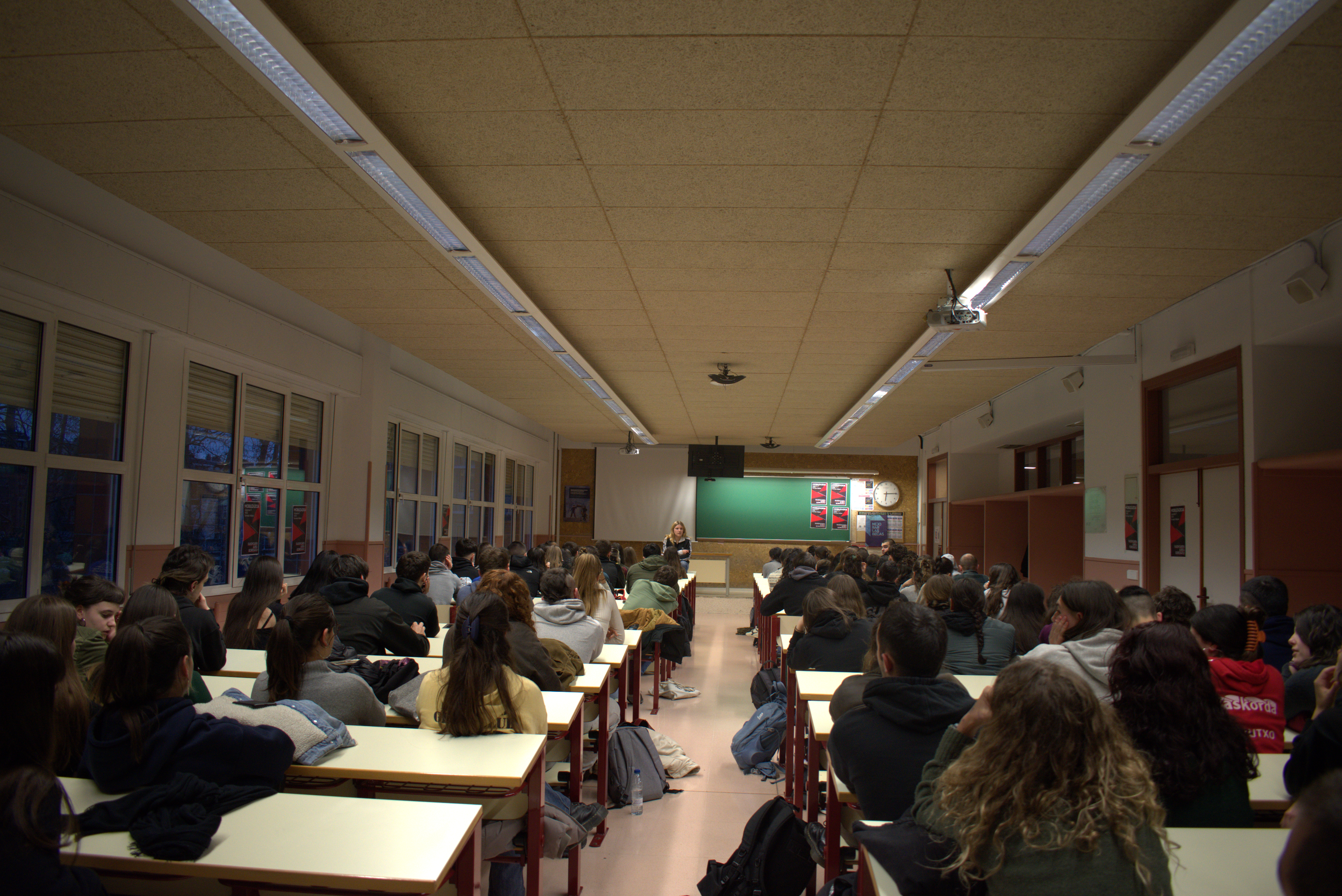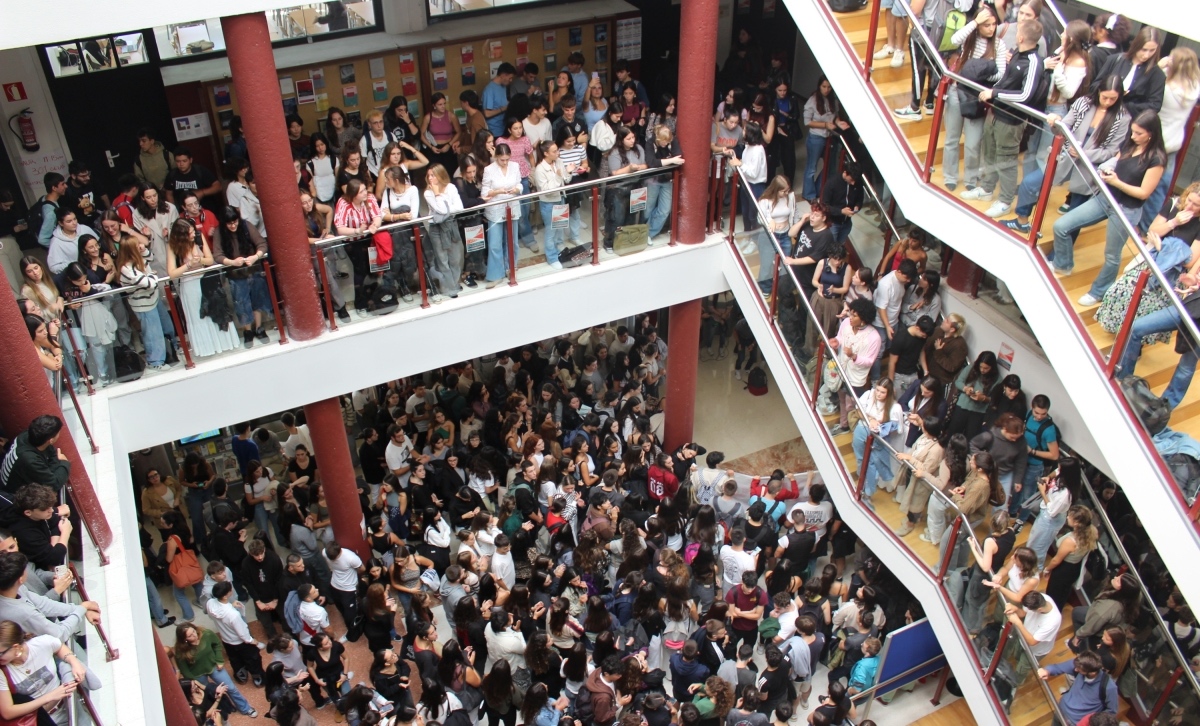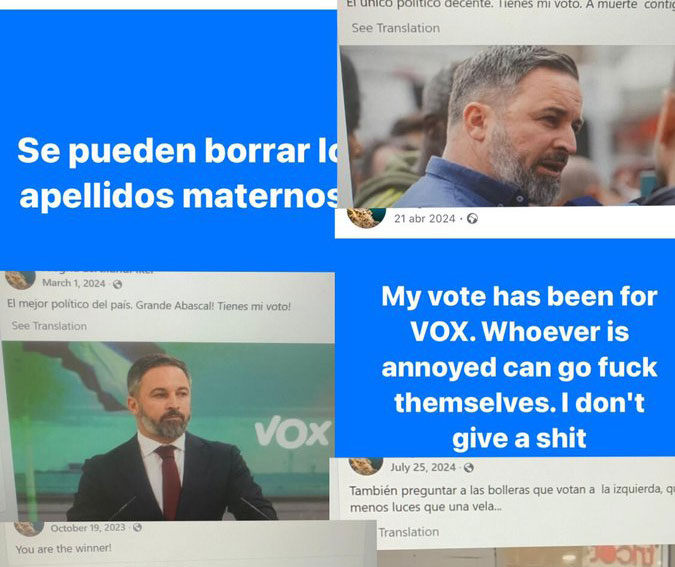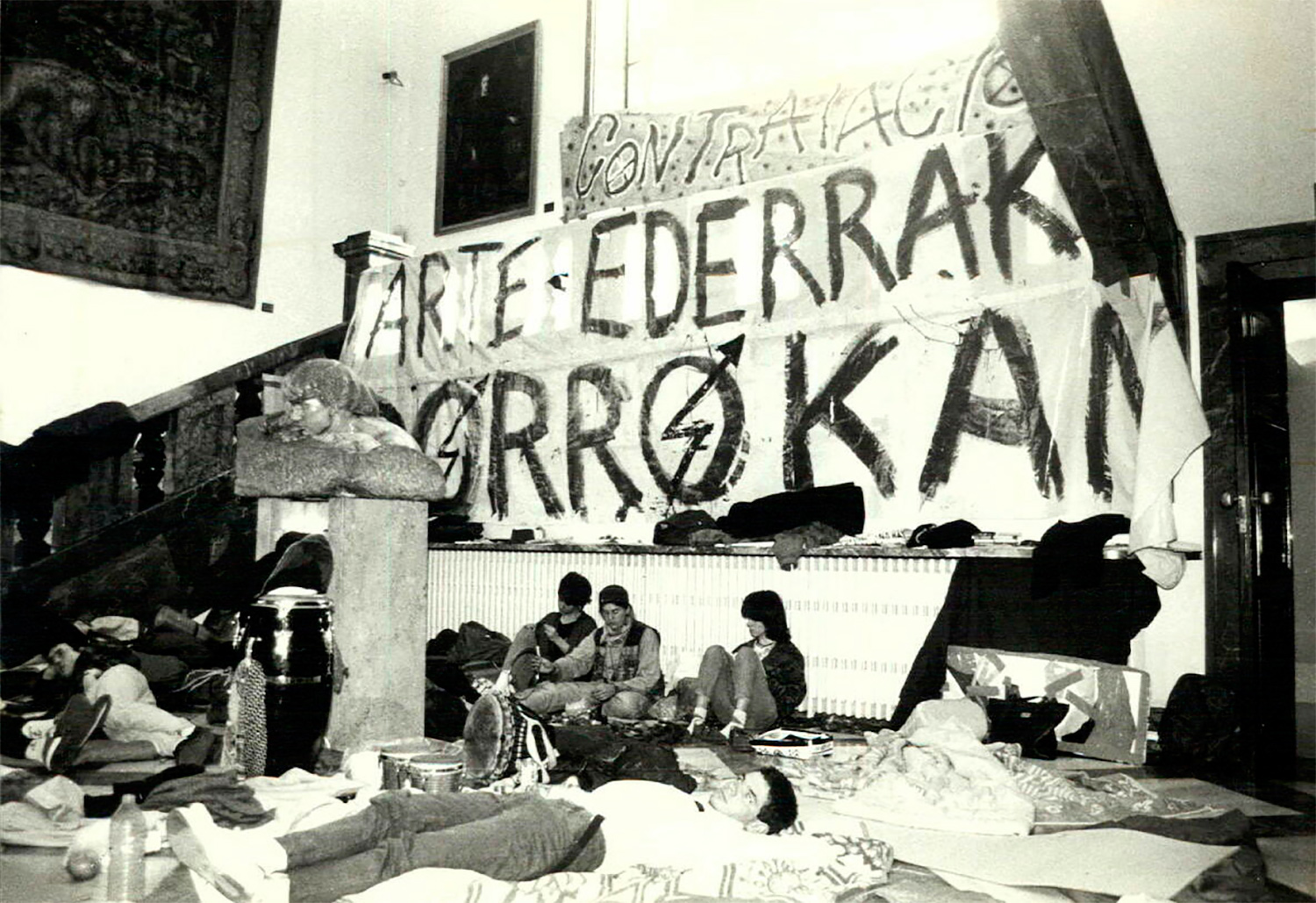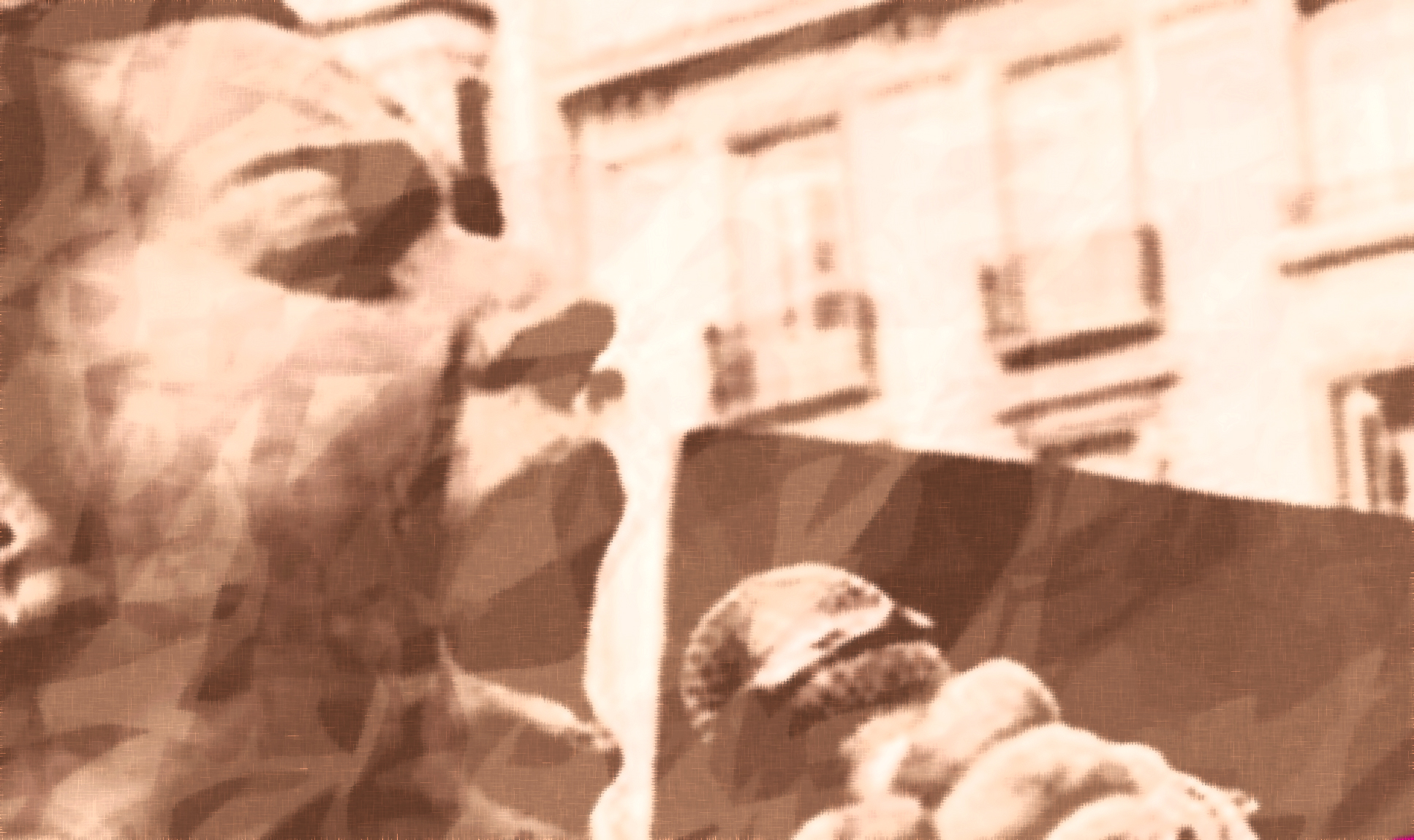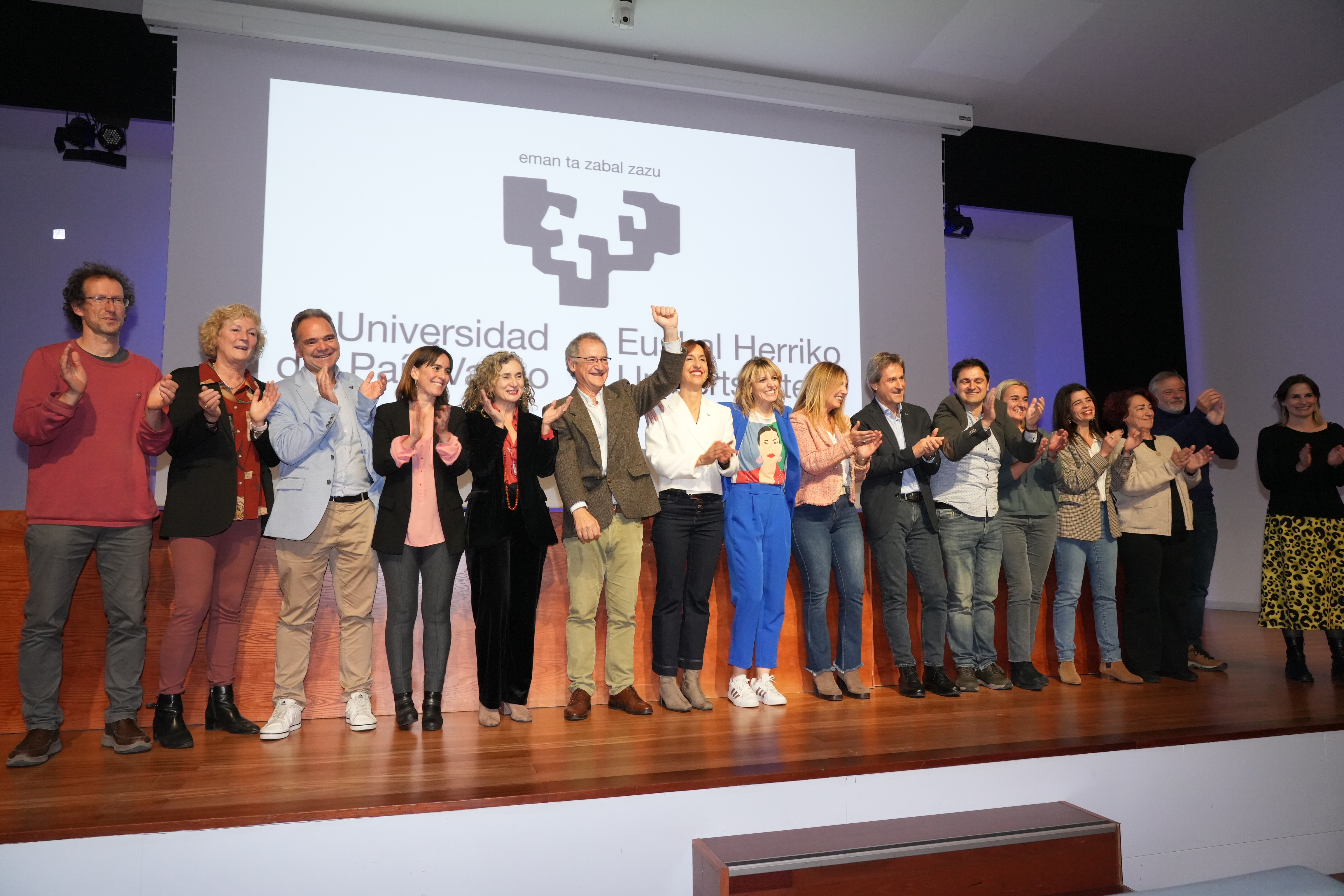Using public money to finance Euneiz is unacceptable
- He was rector of the UPV/EHU in 2009-2017. It is no wonder that between Juan Inazio Pérez Iglesias and Iñaki Goirizelaia the foundations of our current public university were established, upon which two neighboring rectors, Nekane Balluerka, and Eva Ferreira, have placed their specimen. With the objective of Euskal Herria, because the university is an indispensable resource, a strong UPV.

Iñaki Goirizelaia Ordorika (Bilbo, 1958) Ingeniaritza Telematikoan katedradun eta irakasle EHUko Komunikazioetako Ingeniaritza sailean. 1981ean hasi zen irakasle Bilboko Goi Ingeniaritza eskolan, eta unibertsitate publikoko errektore izan zen bi agintalditan. Dantzari porrokatua, Victor Olaetaren ikasle, Mungiako dantza taldeko dantzari eta dantza irakasle eta koreografo, Bai, Bagara dokumentala eta Kantuetan dantzan ikuskizunaren eragile da. Oraintsu, zientzia eta dantza bateratu ditu Sareetan zehar dantzan, java erabiliz liburuan.
Asking about your health is like a cancer, a heart attack...
I can't do more than the body allows me. I travel every day, but, for example, I can't go with my friends to the mountain. When I start the uphill, my heart warns me. I had lymphoma, I also had a heart attack... I've had several things. In August, for example, I was hospitalized. I got a catheterization. It seems like I'm OK, but the heart attack caused me a necrosis, and the strength that your heart has to boost blood doesn't have me.
A long time ago, in an article you reported on your cancer.
Cancer is a process of overcoming. I found it interesting to realize my experience and say that many times the disease is overcome. When I published the article, it was eighteen years since I was diagnosed with cancer: therefore, most of my age. I celebrate twice the birthday, the day I was born and the day I started taking chemotherapy, on January 11. It was the renaissance.
I also remember another article, I asked the metro to reach the Leioa campus of the UPV…
And this is something that's been around for a long time. Not applicable. They said that there is not enough movement on the Leioa campus that requires a subway ramal. It would not have been profitable. But when you make such a big infrastructure, if you look at profitability, it's over! There the buses run to Errigoiti, or the metro itself reaches Plentzia, where in winter less people live than in the university. On the contrary, 16,000 or 17,000 people will circulate on the Erandio-Leioa campus in one way or another. It's a great town. And every day there's movement. That the cost of access infrastructure was higher than necessary? I don't know. Without that, I have often thought that college has not been among the priorities. It seems that things are changing.
What does it mean that now college is one of our priorities?
Yes, society considers the UPV/EHU to be of great value, and I would say it is fundamental. This has been seen in the pandemic itself. The contribution of the UPV/EHU to the pandemic has been very good. The information provided has been of quality both in the content and in the way the content is transmitted. We've given information so that you can understand people who don't know about science. On the other hand, in our society, nobody challenges the value of science. In the surveys carried out, the UPV/EHU is also the institution that best values society or one of the institutions. And I hope that public institutions will extend their commitment to the UPV/EHU.
.jpg)
"I celebrate twice the birthday, the day I was born and the day I started taking chemotherapy, January 11. That was reborn.”
The question that is always put to the rector of the UPV/EHU is whether our public university receives sufficient support from the government. And the answer is by no means affirmative.
When someone is in power, they have a thousand things in their hands. The pandemic, the situation of the pandemic, the economy, the political conflict… Maintaining the balance is not easy. Political decisions predominate: “I’m not going to bet on college, I’m going to try in Early Childhood Education.” For example. Or in healthcare, in the Ertzaintza, in the Supersur or in the high-speed train. The authorities decide where to go, there they have their votes, and the votes allow them to do so. The rectors of the UPV/EHU have nothing to say there. When I was a rector, I often said that the UPV needed more funding; I often said where funding had to be used. Many times.
Is the UPV/EHU still in need of a larger budget today?
I believe that with the budget we have, we can only lift the blinds. And it's a lot. The UPV/EHU is transatlantic, not easily managed. Every day thousands of hours are taught, research laboratories are disseminated, research, dissemination and knowledge transfer are carried out. Every day, but we do it as we can. If you really want to invest in research, you have to spend a lot more money in college. Not just in college, but to start in college. Spending on research on gross domestic product, which I call “investment”, has fallen in recent years. When the lehendakari Ibarretxe played the most. It was then over 2%, it is very little, but now we do not reach that 2%, and in addition that money does not reach the UPV, there are so many research centers and companies, and everyone receives it from that percentage.
Why is the UPV/EHU not firmly committed?
…
Is it a political choice?
It's a political decision -- you have to look at history. In this country, we have never had a university culture. Never. Here what you've thought is that there are academies that are universities, but doctrine doesn't mean university. One example is what is going to happen in Vitoria. [Euneiz] That's unacceptable, that's not the university, it's a company that grants degrees and whose goal is economic benefit. And maybe it's just the goal, but not the public money for it. Going back to my argument, there has been no university culture in Euskal Herria. It was moved to Salamanca [Spain] and its foundation dates back 800 years. They moved to the United States and there, in the newborn, they started opening universities the day after their birth: Massachusetts, MIT and Harvard are examples. When the Puritans began to flee from England, they did not take a day to set up college. They knew if they wanted to do something there, what they would need: college.
Here we don't have a college tradition like ...
Here, to start with, it's been a very hard thing for us to be a public university. Our most forceful reference was the University of Oñati, which was not Oxford, not Cambridge, but an initiative of very interesting people moving around the church. But it soon disappeared because nobody believed in her. [Miguel] Unamuno said we didn't need a university here. Unamuno! And then he was rector of Salamanca! That our university was an instrument of nationalists to achieve its goals. We don't have a college tradition. The University of Deusto is there, but until recently it has not opted for research or knowledge transfer, but for the creation of elites. The mission of the public university to extend knowledge to the whole of society, to those who do not know, and to those who do not know, to give opportunities to advance through knowledge... in us it has been created in the 1980s.
He says the University of Deusto has created elites. That is why many leaders of the PNV are born.
Much, but less than you think. There has been a time when the three mayors of the Basque capitals have been “ours”, the general deputies of the three countries “ours” and the president of the CAV “ours”. If I misused the word Forgive, I meant what I learned in the UPV/EHU. And right now, go to a center of any cycle. Ask your teacher where you have learned. Go to a hospital or health center and ask a doctor or nurse where you have learned. Go to any company, ask the engineer where he has learned… That will mean a change in this country.
It is making its way through Euneiz, fulfilling the formalities in the Gasteiz Parliament with the help of the PNV and the PSE.
People have to know what college is, what it is and what it is not for. Travel to South America. There are over a thousand universities, even in garages! Is that what we want? Do we want to create a university to make money? To capture students who have not entered the UPV/EHU without more? At the time when there was no numerus clausus, up to 1,000 students began studying medicine here. Of course, then, some also turned 20 into unemployed. Studies must allow decent work. The Euneiz project is not a university. There is the Unibasq report, and many others, who say clearly where the shortcomings lie. It is unacceptable that public money should be used to finance this private claim.
If I was rector of the UPV/EHU, I would certainly not be so fat. Are you talking calmer when you're a professor than when you're a rector?
Ha, ha… When you’re a rector, you have to keep the balance. It’s complicated to talk about what you think politically, or what you think about college clearly… I think this is the first interview I stop exercising as a rector. I've been involved in a number of radio and television shows, but this is the first interview. And it's been over four years -- when you're a rector, you're a rector of all the teachers and workers, and there's everything there. The University is a small Basque country. A beautiful lab. Balance is fundamental. You can't always tell what you think. However, now that I am a professor, I have no problem in clearly stating what I think.
We believe that the rectors have left office and have finished their university career. What was the road followed by Iñaki Goirizelaia after the cessation?
Iñaki Goirizelaia is a professor at the UPV/EHU, a lover of the university world. I believe that the UPV/EHU is the key to this country’s future, if this country wants to do something in the future, it needs a strong UPV/EHU. I have said this many times: Depending on what the UPV/EHU looks like, our future. Ever since I left the post of rector, I'm a professor. I want what I do: to teach, to be part of a research team, to carry out projects, to write books… That’s what I want and I don’t need more. I'm not born to be Vice-President of Iberdrola, I believe in public education, in research and in the dissemination of knowledge, I think this country needs a strong university.
He believes in college, in the UPV, in heart. As in this country, I would say that, many times, you have had to bite your tongue because of your office.
I have never said this publicly, but I will say it here: I am increasingly pro-independence. I've always been, and now a lot more. And if we want to go as a country to international debates, forums and meetings, we need a strong university behind us. A strong university. The UPV/EHU has taken many steps. It compares to any major university, and we are far from it, but the UPV/EHU is only forty years old. And here, the important thing is not just where we are, where we come from and where we go. We have made a lot of progress and today our university is well oriented. But we're missing, we're missing a lot.

"I'm becoming more and more independent. I've always been, and now a lot more. And if we want to go as a country to international debates, forums and meetings, we need a strong university behind us.”
You told us that you like what you do, teach, research, write… You will soon bring us a rather curious book.
Yes. Dancing through networks using java. Java is a programming language.
Dancing with Java. Because you're a tough dancer.
That's what they asked me, stop being a rector, and what I had to do. In one of them I replied: “I’m not going to be my whole life as a rector, but I’m going to be a ballerina.” I want dance, I've always been in the dance world, in Mungia and in Bilbao. I spent many years in the ballet Olaeta. I had as a reference to Victor Olaeta, I was dancing with him until I was 50 years old. I learned a lot from him. It is the most important referent of this country in the dance world. I have no doubt. In 1973, we created a group of dances in Mungia, and now I'm a local dance professor. I also create choreographies, I base myself on our roots and dances and I do new things… Dance is one of the most important parts of my life. Without that, it wouldn't be me.
Engineer and dancer.
My work surprised me. “Are you an engineer and dancer? And you've done classical dance, and have you done this and that?" Yes, engineer and dancer, and in the new book I related both: when I was teaching the java program in the classes I used dance examples, or the way a group of dances is managed, etc. In the end, every time I mention a dance in the book, I thought about making an explanation and illustration of the Harex. And so has come what I've done dancing through the Nets, using java, with the help of Maider Huarte.
An event I remember, more than twenty years ago... Tribute to Lauaxeta in the cemetery of Santa Isabel de Vitoria against the wall in which the poet was murdered. You dancing the aurresku, silence without more music.
It was a very special moment. This has an explanation. Lauaxeta was not from Mungia, but he lived there, and there his family follows. I think it was in 1976, Christmas Day brought Lauaxeta's body to Mungia, and I danced the aurresku before I took him to the cemetery and buried him. It was a very special moment. Silence was tremendous. They organized it very well. And everybody in silence. That silence stuck in my head. Then, when at the age of Vitoria, I had the opportunity to dance again in honor of Lauaxeta, I thought the best music was silence. And so it did. Both are very special moments in my life.
Dancer, dance teacher, choreographer -- what is dance in our country, as you see.
Dance is also a mirror of our people. We're always in the sokatira, pulling the rope of our own. In the world of dance, we have not been able to reach a minimum consensus. Here's Dantzerti, but there you've wagered on classical dance, even if you've got a little bit of traditional dance, you've got optional ones included. But there's no regulated dance formation, there's no. The Irish have it, flamenco has it. In our case, however, there has never been a regulated teaching of traditional university dance. One thing is to train monitors to be able to teach dance in schools, and another thing is that the university has a PhD program on traditional dance, or that offers a degree, or a Master's program, for example. It's very complicated ...
What's complicated?
The Government should commit itself to this. It would be necessary to establish traditional dance studies and within them to focus on Basque dances, to create a complete academic line. Like the Irish, for example. Without that we will not succeed. The Irish do not need embassies, they are known, but they performed a dance show that allowed them to reach all over the world. That's the best embassy! And what is the Basque identity in North and South America, which is not dance!
* * * * * * * * * * *
Yeah, Gara. Dancing in the songs
“I left the post of rector and made the documentary Yes, Bagara. I went to the United States and interviewed several members of the diaspora to reflect on Basque values. Haven't you seen it?... I also assembled the show dancing in songs. I took familiar songs and choreographed them. Show presentation at the Euskalduna Palace: Ruper [Ordorika], Andrea Bidart, Antton Valverde, Oreka TX, Mikel Markez, Korrontzi, the sons of the Itziar… They sing live and we dance. Very interesting.”
New dance
“Victor Olaeta was the first to put on the box of Basque dances, adapted, doing new things. I've also been out there. I see it right. But this has also had another consequence: the dance taking place in the town square has disappeared, the dance has become almost a spectacle, the social dance has been lost. In Sokadantza, there was a social dance, and they went out of the hand of boys and girls to the plaza. They all danced to aurresku and atzesku.”
Social dance
“The young girl used to dance in any village. It was a purely social dance. For a long time it has served to establish relations between boys and girls, etc. Then came the tournaments, the dancers started dancing with great virtuosity, and people saw and thought I wasn't able to dance like them. Conclusion? Fewer and fewer people are dancing in the plaza or in a pilgrimage.”
LAST WORD
José Ramón Etxebarria
“The coup attempt on February 23 caught me in the office of Joserra [Etxebarria] in Leioa, in science school. I was finishing the career and I was doing the project, in Basque. I didn't know how to say the terms in Basque, and I was combing my work. And now, after 40 years, we've come back to work together, Joserra has helped me do the hairstyle of the current book."
The UPV/EHU Palestine was born with the aim of breaking with all Israeli companies and institutions that are carrying out and working with genocide in Palestine. Israel’s impunity comes from its political, military, economic, scientific and academic relations in Europe and the... [+]









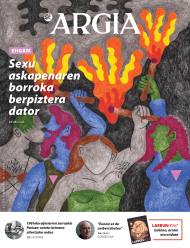

_2.jpg)
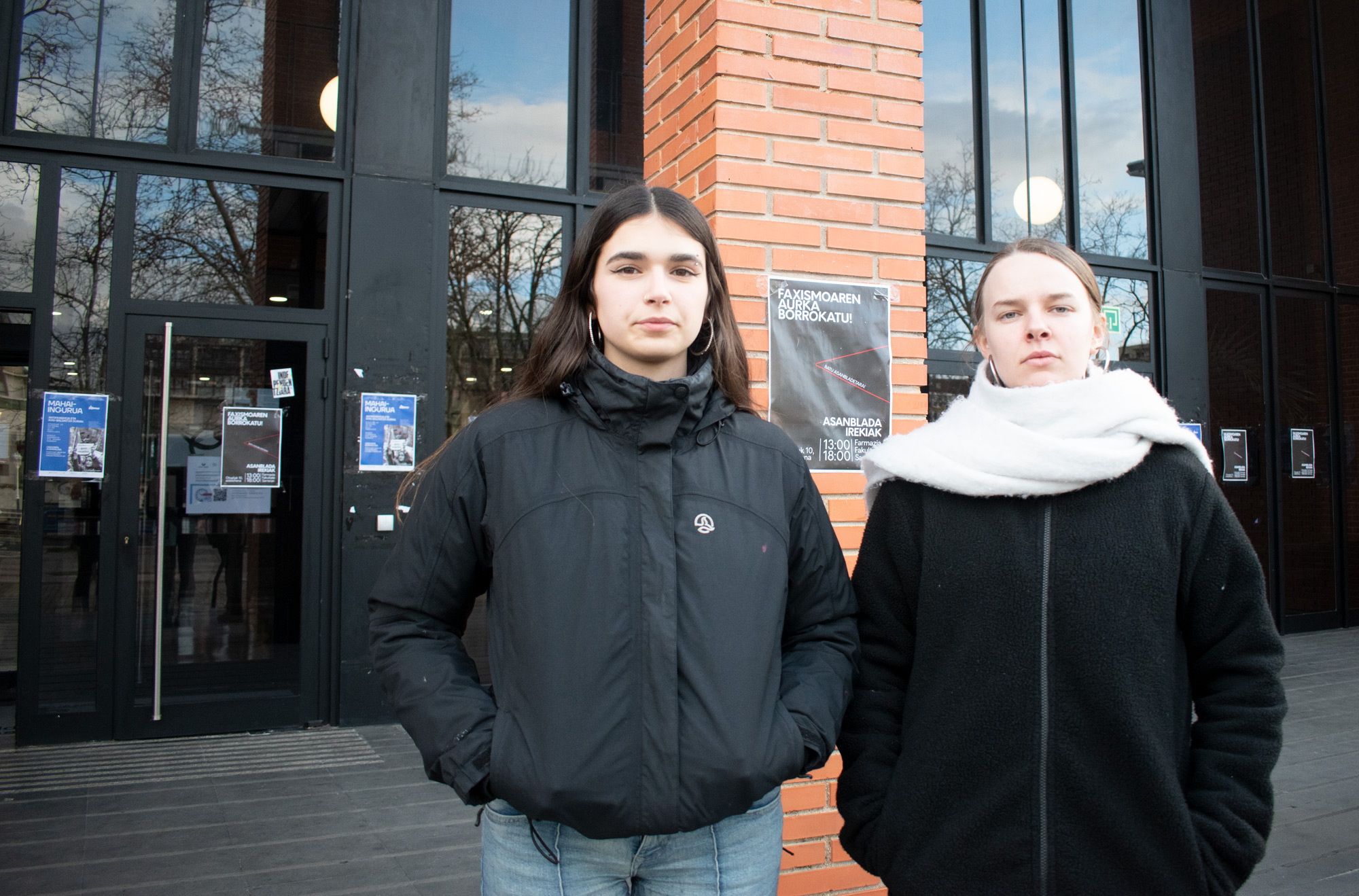
_2.jpg)

_2.jpg)
